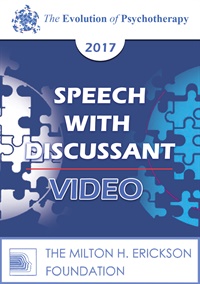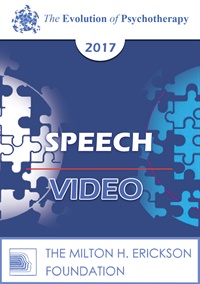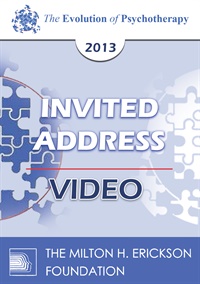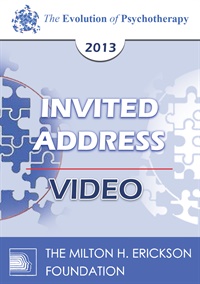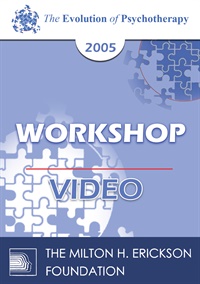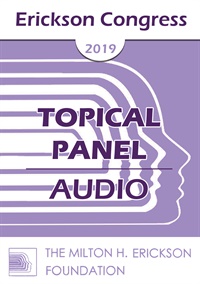
- Average Rating:
- Not yet rated
- Topic Areas:
- Workshops | Consciousness | Neuroscience | Research
- Categories:
- Erickson Congress | Erickson Congress 2019
- Faculty:
- Carol Kershaw, EdD | Bill Wade, PhD
- Duration:
- 1 Hour 57 Minutes
- Format:
- Audio Only
- Original Program Date:
- Dec 13, 2019
- Short Description:
- Most people live in survival based thinking and feeling by repeating the same reactions to similar triggers, and have forgotten what it means to live in harmony and connection with themselves and each other. Chronic depression, anxiety, rumination, and other psychological problems are not natural states. As science explodes new findings of how to live more often in states of resilience and thriving, these tools can be easily learned and taught to clients.
- Price:
- $15.00 - Base Price
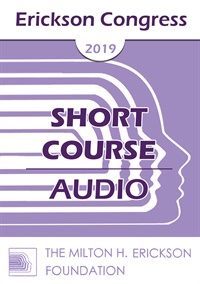
- Average Rating:
- Not yet rated
- Topic Areas:
- Short Courses | Ericksonian Hypnosis and Therapy Techniques | Pain and Healing | Research | Hypnosis
- Categories:
- Erickson Congress | Erickson Congress 2019
- Faculty:
- José Cava, Lic Psychologist
- Duration:
- 1 Hour 25 Minutes
- Format:
- Audio Only
- Original Program Date:
- Dec 12, 2019
- Short Description:
- Milton H. Erickson was a pioneer in understanding and managing chronic pain, even in his own life. He developed a variety of original and very effective hypnotic approaches to deal with pain. Acute pain is different from chronic pain, as recent research shows. The persistent of pain causes changes that permanently alter various areas in the brain and their communications. Chronic pain does not respond well to typical acute pain treatments and should be approached differently, with a more global and integrated approach.
- Price:
- $15.00 - Base Price
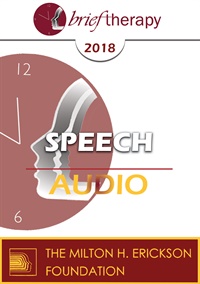
- Average Rating:
- Not yet rated
- Topic Areas:
- Speeches | Trauma
- Categories:
- Brief Therapy Conference | Brief Therapy Conference 2018 | Pioneers in Couples and Family Therapy
- Faculty:
- Janina Fisher, PhD
- Duration:
- 1:05:26
- Format:
- Audio Only
- Original Program Date:
- Dec 09, 2018
- Short Description:
- Janina Fisher explores how traumatic memories continue to impact individuals through persistent symptoms like depression and anxiety. She introduces the concept of implicit memory, explaining how emotional and visceral memories shape current behavior. Fisher offers practical techniques for helping clients understand their trauma responses, emphasizing a transformational approach that focuses on healing and creating new experiences rather than reliving past events.
- Price:
- $15.00 - Base Price
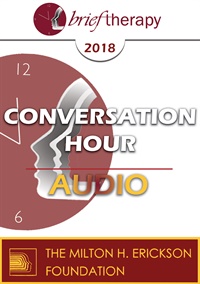
- Average Rating:
- Not yet rated
- Topic Areas:
- Great Conversations | Anxiety | Depression | Research | Training | Brief Therapy
- Categories:
- Brief Therapy Conference | Brief Therapy Conference 2018
- Faculty:
- Stephen Gilligan, PhD | Scott Miller, PhD
- Duration:
- 1:05:12
- Format:
- Audio Only
- Original Program Date:
- Dec 08, 2018
- Short Description:
- Therapists need theoretical and technical constructs, including those that are empirically based. Therapists need to understand how to create a comprehensive treatment plan.
- Price:
- $15.00 - Base Price
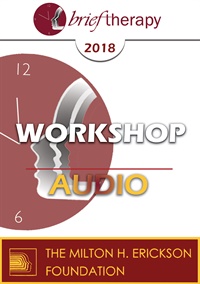
- Average Rating:
- Not yet rated
- Topic Areas:
- Workshops | Brief Therapy | Therapeutic Relationship | Therapist Development | Professional Practice
- Categories:
- Brief Therapy Conference | Brief Therapy Conference 2018
- Faculty:
- Bob Bertolino, PhD
- Duration:
- 1:59:16
- Format:
- Audio Only
- Original Program Date:
- Dec 07, 2018
- Short Description:
- How do we honor psychotherapy’s roots while staying accountable to today’s demands for measurable results? In this wide-ranging workshop, Bertolino traces key ideas from the Evolution of Psychotherapy conferences to current practice, highlighting hope, client strengths, alliance, cultural responsiveness, and outcome feedback as enduring drivers of change. Blending history, research, and real-world agency experience, he offers a practical framework for improving effectiveness without losing the human core of the work.
- Price:
- $15.00 - Base Price
Credit available - Click Here for more information
- Average Rating:
- Not yet rated
- Topic Areas:
- Speeches with Discussants | Psychotherapy | Systems Theory
- Categories:
- Evolution of Psychotherapy | Evolution of Psychotherapy 2017 | Online Continuing Education
- Faculty:
- John Gottman, PhD | Bill Bumberry, PhD | Jeffrey Zeig, PhD
- Course Levels:
- Master Degree or Higher in Health-Related Field
- Duration:
- 1:30:24
- Format:
- Audio and Video
- Original Program Date:
- Dec 16, 2017
- Short Description:
- This session revisits general systems theory through decades of direct observation of couples and families. Drawing on research from the Love Lab, it identifies measurable interaction patterns such as the 5:1 positive-to-negative ratio, physiological arousal, trust, and commitment. Video examples and clinical discussion show how these findings translate into practical tools therapists can use to assess stability, prevent relapse, and strengthen relationships.
- Price:
-
Sale is $29.00
price reduced from Base Price - $59.00
Credit available - Click Here for more information
- Average Rating:
- Not yet rated
- Topic Areas:
- Speeches | Research | Psychotherapy
- Categories:
- Evolution of Psychotherapy | Evolution of Psychotherapy 2017 | Online Continuing Education
- Faculty:
- Scott Miller, PhD
- Course Levels:
- Master Degree or Higher in Health-Related Field
- Duration:
- 1:01:47
- Format:
- Audio and Video
- Original Program Date:
- Dec 15, 2017
- Short Description:
- Psychotherapy is remarkably effective. Fifty years of research provides overwhelming empirical support for the practice. At the same time, study after study shows that the majority of people who could benefit from seeing a therapist never go. Put more bluntly, they would never even consider going. Of those who start, between 25 and 50% unilaterally discontinue prior to experiencing any benefit from the service. Stigma, ignorance, denial, and lack of motivation are the most common reasons cited by professionals for people either not seeking help or dropping out of treatment. Research provides another explanation.
- Price:
-
Sale is $29.00
price reduced from Base Price - $59.00
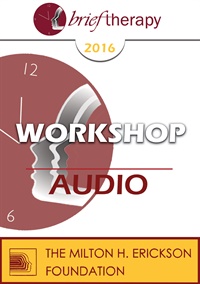
- Average Rating:
- Not yet rated
- Topic Areas:
- Workshops | Brief Therapy | Ericksonian Hypnosis and Therapy Techniques | Research | Therapist Development
- Categories:
- Brief Therapy Conference | Brief Therapy Conference 2016
- Faculty:
- Jeffrey Zeig, PhD
- Duration:
- 2:02:54
- Format:
- Audio Only
- Original Program Date:
- Dec 11, 2016
- Short Description:
- Skills and experience, research and theory ... each plays a central role in the development of effective therapy practice. And then there is something else. When we recall the work of such figures as Milton Erickson, Virginia Satir, and Carl Whitaker, we detect another layer: artistry. Surprisingly, artistry is something that can be taught, or more accurately, expanded. Everyone has the capacity. And it is artistry that brings forth all of that skill, experience, research and theory in effective and generative ways.
- Price:
- $15.00 - Base Price
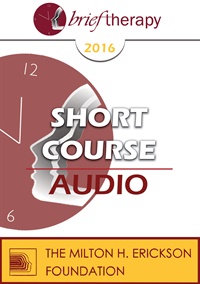
- Average Rating:
- Not yet rated
- Topic Areas:
- Short Courses | Brief Therapy | Therapist Development | Professional Practice
- Categories:
- Brief Therapy Conference | Brief Therapy Conference 2016
- Faculty:
- Bob Bertolino, PhD
- Duration:
- 1:31:31
- Format:
- Audio Only
- Original Program Date:
- Dec 08, 2016
- Short Description:
- What does a “renaissance” in brief therapy really look like? In this wide-ranging session, Bertolino explores how outcome research, positive psychology, feedback-informed treatment, and therapist development intersect to improve results. Drawing from agency data and cross-disciplinary trends in health and education, he challenges clinicians to move beyond symptom reduction toward measurable well-being, stronger fit, and deliberate practice that sharpens effectiveness over time.
- Price:
- $15.00 - Base Price
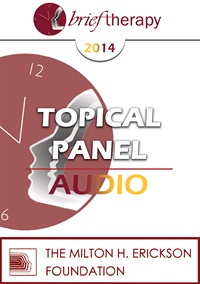
- Average Rating:
- Not yet rated
- Topic Areas:
- Psychotherapy | Topical Panels | Research
- Categories:
- Brief Therapy Conference | Brief Therapy Conference 2014
- Faculty:
- Scott Miller, PhD | Michael Yapko, PhD | Ernest Rossi, PhD
- Duration:
- 1:01:28
- Format:
- Audio Only
- Original Program Date:
- Dec 13, 2014
- Short Description:
- This panel dives into the evolving relationship between research and psychotherapy, confronting issues from antidepressant studies ghostwritten by pharma to landmark trials showing therapist skill outweighs treatment model. Through stories of media influence, policy debates, and clinical realities, participants see how conflicting findings ripple from the lab to the consulting room. The discussion underscores why translating research into meaningful practice—and training therapists to measure and reflect on outcomes—matters more than ever.
- Price:
- $15.00 - Base Price
- Average Rating:
- Not yet rated
- Topic Areas:
- Trauma | Invited Addresses | Memory | Post-Traumatic Stress Disorder (PTSD) | Psychotherapy | Research
- Categories:
- Evolution of Psychotherapy | Evolution of Psychotherapy 2013
- Faculty:
- Bessel van der Kolk, MD
- Course Levels:
- Master Degree or Higher in Health-Related Field
- Duration:
- 52:44
- Format:
- Audio and Video
- Original Program Date:
- Dec 13, 2013
- Short Description:
- This workshop explores how trauma affects people’s rhythms within themselves and with their surroundings. Trauma changes the way the brain processes information and how the human organism engages with the world. Because of biological systems that are altered in a use-dependent manner traumatized people continue to react in myriad ways to current experience as a replay of the past.
- Price:
-
Sale is $29.00
price reduced from Base Price - $59.00
- Average Rating:
- Not yet rated
- Topic Areas:
- Invited Addresses | Suicide | Psychotherapy | Research
- Categories:
- Evolution of Psychotherapy | Evolution of Psychotherapy 2013
- Faculty:
- Marsha Linehan, PhD
- Course Levels:
- Master Degree or Higher in Health-Related Field
- Duration:
- 57:21
- Format:
- Audio and Video
- Original Program Date:
- Dec 13, 2013
- Short Description:
- There is no area of research that brings a complex array of ethical issues into sharp focus more than conducting treatment trials when the focus is on decreasing suicidal behavior and preventing suicide. Historically, suicidal individuals have been excluded from treatment studies because their inclusion was thought to be unethical, unsafe or too difficult to manage clinically. This presentation will discuss where the field of suicide intervention research started, the successes and failures we have encountered thus far, as well as the critical issues that still need to be addressed in order to move the field forward.
- Price:
-
Sale is $29.00
price reduced from Base Price - $59.00
Tags: Suicide Psychotherapy Research
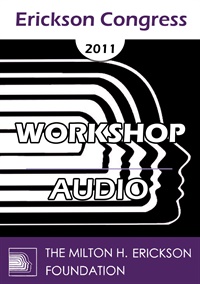
- Average Rating:
- Not yet rated
- Topic Areas:
- Meditation, Spirituality and Yoga | Hypnosis | Workshops | Hypnotherapy
- Categories:
- Erickson Congress | Erickson Congress 2011
- Faculty:
- Jorge Abia, MD | Rafael Nuñez, MA
- Duration:
- 59 Minutes
- Format:
- Audio Only
- Original Program Date:
- Dec 07, 2011
- Short Description:
- This workshop bridges neuroscience and clinical practice to clarify how hypnosis differs from meditation and why those differences matter in therapy. Presenters explain how trance shapes attention, memory, pain perception and hemispheric functioning, then demonstrate how these mechanisms support metaphor work and experiential change. Participants gain a clear, practical understanding of the neurophysiology behind hypnotic states and learn ways to apply this knowledge to create more effective, targeted interventions.
- Price:
- $20.00 - Base Price
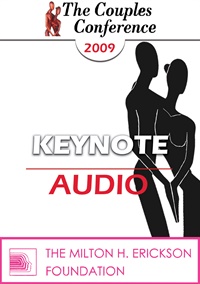
- Average Rating:
- Not yet rated
- Topic Areas:
- Keynotes | Couples Therapy | Relationships | Research
- Categories:
- Couples Conference | Couples Conference 2009
- Faculty:
- John Gottman, PhD
- Duration:
- 2:49:17
- Format:
- Audio Only
- Original Program Date:
- May 03, 2009
- Short Description:
- Drawing upon 36 years of systematic multi-method longitudinal research with couples, Dr. Gottman teaches the differences between successful and unsuccessful couples in dealing with conflict and fostering romance and harmony. Dr. Gottman provides the basic clinical skills needed to help couples improve their relationships.
- Price:
- $15.00 - Base Price
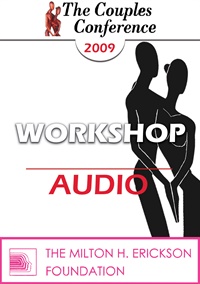
- Average Rating:
- Not yet rated
- Topic Areas:
- Workshops | Couples Therapy | Marriage | Relationships | Research
- Categories:
- Couples Conference | Couples Conference 2009
- Faculty:
- Pat Love, EdD
- Duration:
- 1:40:31
- Format:
- Audio Only
- Original Program Date:
- May 03, 2009
- Short Description:
- Several new studies have uncovered a seismatic shift that has taken place regarding the purpose and practice of marriage. These research findings explain many of the difficulties we face behind the therapy door. Come get a research update and clinical applications for couple's therapy. Lecture, video, handouts, discussion, demonstration will be utilized.
- Price:
- $15.00 - Base Price
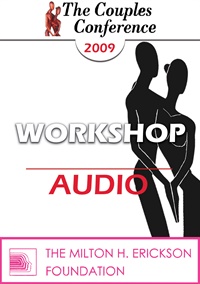
- Average Rating:
- Not yet rated
- Topic Areas:
- Workshops | Couples Therapy | Neuroscience | Research
- Categories:
- Couples Conference | Couples Conference 2009
- Faculty:
- Pat Love, EdD
- Duration:
- 1:22:34
- Format:
- Audio Only
- Original Program Date:
- May 01, 2009
- Short Description:
- Current research from the field of neurophysiology confirms the fact that permanent change involves treating the system as well as the symptom. Come learn a simple, yet impactful way to help couples break old patterns by forming new ones. Lecture, demonstration, video and experiential exercise will be used.
- Price:
- $15.00 - Base Price
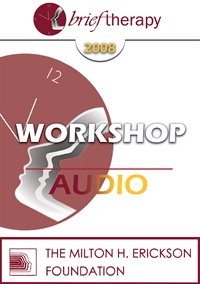
- Average Rating:
- Not yet rated
- Topic Areas:
- Workshops | Hypnosis | Psychotherapy
- Categories:
- Brief Therapy Conference | Brief Therapy Conference 2008
- Faculty:
- Michael Yapko, PhD
- Duration:
- 2:32:58
- Format:
- Audio Only
- Original Program Date:
- Dec 14, 2008
- Short Description:
- This session explores hypnosis as both a subject of modern neuroscience and a practical tool in psychotherapy. Emphasizing dissociation, selective attention, and suggestion, it highlights how hypnosis deepens cognitive and experiential shifts across contexts such as pain management, depression, and memory work. Participants gain a framework for integrating formal and informal hypnosis into their practice, using it not as a therapy in itself but as a powerful way to deliver ideas, evoke resources, and strengthen therapeutic outcomes .
- Price:
- $15.00 - Base Price
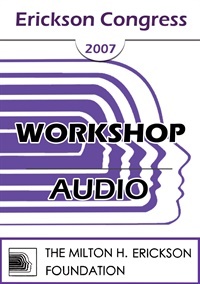
- Average Rating:
- Not yet rated
- Topic Areas:
- Workshops | Communication | Research | Relationships
- Categories:
- Erickson Congress | Erickson Congress 2007
- Faculty:
- Wendel Ray, PhD
- Duration:
- 1:29:27
- Format:
- Audio Only
- Original Program Date:
- Dec 09, 2007
- Short Description:
- Bateson's Research Team and the Palo Alto Group (Jackson, Haley, Weakland, Fry, and Watzlawick) developed Communication Theory. Grounded in 65 years of research, Interactional Focused Clinical Approaches, derived form Communication Theory offer a radically alternative paradigm for understanding human behavior and evoking change. These essential premises and practical interventions techniques will be described.
- Price:
- $15.00 - Base Price
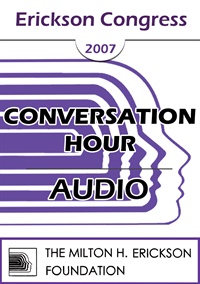
- Average Rating:
- Not yet rated
- Topic Areas:
- Conversation Hours | Ericksonian Hypnosis and Therapy Techniques | Cross-Cultural Therapy | Meditation, Spirituality and Yoga
- Categories:
- Erickson Congress | Erickson Congress 2007
- Faculty:
- Jorge Abia, MD | Sofia Bauer | Teresa Robles, MA, PhD
- Duration:
- 51:22
- Format:
- Audio Only
- Original Program Date:
- Dec 08, 2007
- Short Description:
- This conversation hour offers an inside look at how Ericksonian hypnosis is practiced, adapted and expanded across Latin America. Clinicians from Mexico and Brazil discuss cultural influences on trance, the role of traditional medicine, and the balance between scientific rigor, intuition and spirituality. Participants hear how Ericksonian ideas take shape in diverse communities and why flexibility, cultural sensitivity and creative use of hypnotic language are essential in these settings.
- Price:
- $15.00 - Base Price
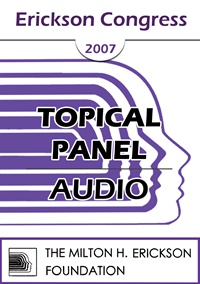
- Average Rating:
- Not yet rated
- Topic Areas:
- Topical Panels | Milton Erickson | Ericksonian Psychotherapy | History of Psychotherapy | Hypnosis | Utilization
- Categories:
- Erickson Congress | Erickson Congress 2007
- Faculty:
- Betty Alice Erickson, MS, LPC, LMFT | Stephen Gilligan, PhD | Stephen Lankton, MSW | Ernest Rossi, PhD
- Duration:
- 1:02:11
- Format:
- Audio Only
- Original Program Date:
- Dec 08, 2007
- Short Description:
- In this thoughtful panel, senior colleagues reflect on Milton H. Erickson’s enduring legacy, especially his radical use of utilization. Through personal stories, clinical anecdotes, and lively exchange, they explore his observational precision, evolving indirect style, and belief in client independence. The discussion moves beyond technique to examine how presence, ambiguity, and experiential transformation continue to shape psychotherapy’s future.
- Price:
- $15.00 - Base Price

- Average Rating:
- Not yet rated
- Topic Areas:
- Workshops | Research | Brief Therapy | History of Psychotherapy | Psychotherapy
- Categories:
- Brief Therapy Conference | Brief Therapy Conference 2006
- Faculty:
- Scott Miller, PhD
- Duration:
- 2:03:53
- Format:
- Audio Only
- Original Program Date:
- Dec 07, 2006
- Short Description:
- At last count, over 400 separate models of psychotherapy have been found to exist (Garfield & Bergin, 1994). Despite the claims and promises made by the proponents of the various treatment models, 40 years of increasingly sophisticated outcome research has not found any one model or technique superior for the resolution of the problems that clients bring into treatment, Indeed, most of the research has only confirmed "common sense" (Frank 1993). In this workshop, forty years of outcome research will be translated into practical, common sense and empirically supported therapeutic skills that you can use for the efficient and effective resolution of the problems that clients bring to treatment.
- Price:
- $15.00 - Base Price
- Average Rating:
- Not yet rated
- Topic Areas:
- Workshops | Psychotherapy | Research | Therapist Development
- Categories:
- Evolution of Psychotherapy | Evolution of Psychotherapy 2005
- Faculty:
- Scott Miller, PhD
- Course Levels:
- Master Degree or Higher in Health-Related Field
- Duration:
- 1:50:53
- Format:
- Audio and Video
- Original Program Date:
- Dec 07, 2005
- Short Description:
- EP05 Workshop 05 - Partnering with Clients to Improve the Process and Outcome of Treatment - Scott Miller, Ph.D. Based on pioneering research into the curative factors associated with effective clinical work across treatment approaches and disciplines, participants will learn how to partner with clients to tailor treatment for maximum effect and efficiency. Miller also will present a simple, valid and reliable method for maximizing the effectiveness and efficiency of treatment based on client feedback about the process and outcome of treatment.
- Price:
-
Sale is $29.00
price reduced from Base Price - $59.00

- Average Rating:
- Not yet rated
- Topic Areas:
- Dialogues | Brief Therapy | Research
- Categories:
- Brief Therapy Conference | Brief Therapy Conference 2002
- Faculty:
- Scott Miller, PhD | James Prochaska, PhD
- Duration:
- 58:14
- Format:
- Audio Only
- Original Program Date:
- Dec 13, 2002
- Short Description:
- BT02 Dialogue 10 - Research in Brief Therapy - Scott Miller, PhD and James Prochaska, PhD
- Price:
- $15.00 - Base Price

- Average Rating:
- Not yet rated
- Topic Areas:
- Topical Panels | Art and Creativity | Psychotherapy | Brief Therapy | Neuroscience
- Categories:
- Brief Therapy Conference | Brief Therapy Conference 2002
- Faculty:
- Steve Andreas, MA, NLP | Albert Ellis, PhD | Scott Miller, PhD
- Duration:
- 58:57
- Format:
- Audio Only
- Original Program Date:
- Dec 13, 2002
- Short Description:
- This topical panel tackles the long-running question of whether psychotherapy is best understood as an art, a science, or something closer to belief and persuasion. Through lively debate and contrasting viewpoints, it explores evidence, technique, therapist influence, and client change, offering a candid look at why different approaches often work, even when their theories sharply disagree.
- Price:
- $15.00 - Base Price
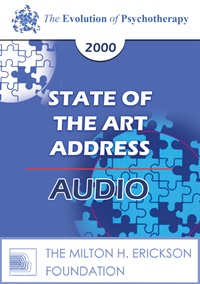
- Average Rating:
- Not yet rated
- Topic Areas:
- State of the Art Address | Belief Systems | Psychotherapy | Therapist Development
- Categories:
- Evolution of Psychotherapy | Evolution of Psychotherapy 2000
- Faculty:
- Albert Bandura
- Duration:
- 51 Minutes
- Format:
- Audio Only
- Original Program Date:
- May 27, 2000
- Short Description:
- This session offers a far-reaching look at self-efficacy as a core driver of motivation, resilience, and change. Drawing on decades of research and applied examples, it shows how beliefs about personal and collective agency shape learning, emotional health, behavior change, and social action, from anxiety and depression to health habits and community-level outcomes. The talk gives therapists and students a practical framework for understanding why confidence, mastery, and perceived control matter so deeply in both clinical work and everyday life.
- Price:
- $15.00 - Base Price


